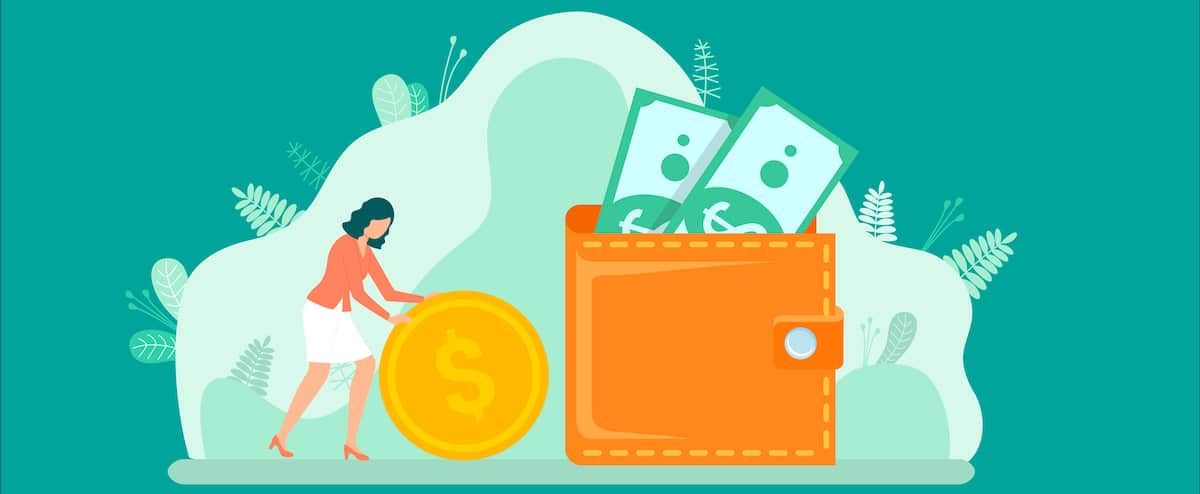The pandemic hasn’t had all negative effects, and some people have even seen their personal finances improve. This is the case for Julie and Christophe, who ended up with a comfortable surplus of $ 11,000. They wonder about the best way to use them.
One can wonder how the couple managed to raise such a sum. First of all, Julie and Christophe kept their jobs. In addition, last April, they obtained several deferrals of payments for their mortgage, car loan and personal debts. That’s a monthly savings of $ 2,300 for six months, and today they have a nest egg of $ 11,000.
An amount that they would like to use in the wisest way. For advice on this matter, they contacted the toll-free Info-Finances line at the Jean Fortin et Associés office.
Why did we save more?
This situation is new for the couple, but their case is not unique, says Pierre Fortin, licensed insolvency trustee and president of Jean Fortin et Associés.
“Indeed, according to the Institut de la statistique du Québec, we recorded from April to June 2020 the highest savings rate for at least 40 years. Overall, Quebecers have managed to save around 35% of their net income when we were in the midst of a crisis, ”he explains.
Several factors can explain this increase. First of all, the pandemic hasn’t affected everyone in the same way. While some lost their jobs or saw their working hours reduced, others were able to keep it and sometimes even work overtime. In addition, the Canada Emergency Benefit of $ 2,000 per month has helped many improve their income.
Certain categories of expenses have also radically decreased: for example, those relating to travel, outings, meals at restaurants, etc.
“In addition, when we are afraid of the future and there is a lot of uncertainty, we put a brake on big spending, at least temporarily,” notes Pierre Fortin.
There are also all those who, like Julie and Christophe, have benefited from a six-month payment moratorium granted by financial institutions and governments. Student loan, mortgage loan, car loan, credit card payment … In the end, this generated surpluses.
How to maximize your savings?
The couple wonder how they can optimize their savings and use that amount in the best possible way. Is it better to put their money in a TFSA, an RRSP or to pay off their debts?
“Julie and Christophe must first of all get rid of their debts. Remember that a $ 5,000 balance on a credit card costs $ 80 per month in interest charges, while the same amount invested in a guaranteed investment will only earn a paltry $ 3 per month. Once they have paid off their costly debts, then they can think about saving, ”advises Pierre Fortin.
He adds that the real value of saving is not so much in returns, but rather is calculated with peace of mind. Thus, by having a safety cushion, we protect ourselves from the unforeseen while allowing ourselves a certain freedom. We improve our credit report and at the same time we give ourselves the opportunity to save money, because a consumer good paid for in cash will cost much less than if you bought it on credit, because of the interest rates.
Advice
- Saving is less rewarding than spending. And when you’re 30, retirement still seems a long way off! To make your job easier and encourage you to save, set short, medium and long term goals. It is more stimulating when the goal to be reached seems attainable.
- Don’t wait until the end of the month to put some money aside. “Savings should be the first line of spending in your budget. Ideally, we systematically save 5 to 10% on each pay, which we deposit in another account by direct debit ”, recommends Pierre Fortin.
- Remember: you can never have too much savings! Plus, don’t get fixated on returns. In these uncertain times, the main thing is to be able to have a security fund to compensate for unforeseen events.
 Canada Live NEWS – 24/7 Breaking Headlines & Updates Canada Live News is one of the largest news curating sites across Canada which is made exclusively for Canadian people.
Canada Live NEWS – 24/7 Breaking Headlines & Updates Canada Live News is one of the largest news curating sites across Canada which is made exclusively for Canadian people.
